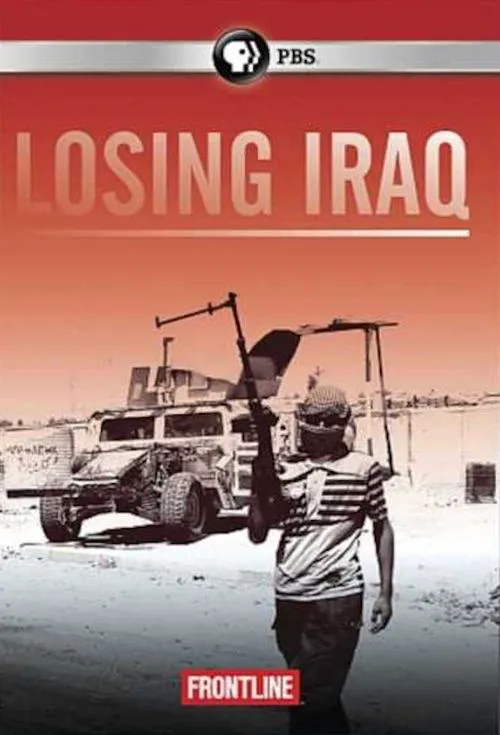Losing Iraq

Plot
Losing Iraq is a documentary film that delves into the complex and tumultuous history of the United States' involvement in Iraq, from the invasion in 2003 to the ongoing conflict in the present day. The film explores the chaos that has unfolded in Iraq and the role that the U.S. has played in exacerbating the situation. Through exclusive interviews with policymakers, military leaders, and other key figures, the documentary provides a comprehensive and nuanced examination of the events that have led to the crisis in Iraq. The film begins by examining the lead-up to the 2003 invasion, when the Bush administration sold the idea of a war in Iraq to the American public. Interviews with key policymakers, including members of the Bush administration and members of Congress, reveal the extent to which the decision to go to war was driven by a desire to assert U.S. power and influence in the region, as well as a misguided attempt to address the threat posed by Saddam Hussein's Iraq. However, as the film points out, the invasion itself was poorly planned and executed, with inadequate troops, insufficient equipment, and a lack of a clear exit strategy. The U.S. military's invasion of Iraq was met with little resistance, but the occupation that followed proved to be a much more difficult and costly endeavor. Interviews with military leaders, including General David Petraeus and General Ray Odierno, reveal the challenges that U.S. forces faced in trying to stabilize the country and establish a functional government. As the U.S. tried to establish a new order in Iraq, the film highlights the extent to which the country itself began to unravel. The power vacuum created by the collapse of Saddam's regime was filled by Shia and Sunni militias, which began to fight each other in a sectarian civil war. The U.S. military's efforts to quell the violence only seemed to exacerbate the situation, and soon the country was plunged into full-blown chaos. Meanwhile, the Iraqi people began to suffer under the brutal rule of various factions, including the Shia-dominated government and the Sunni extremist group al-Qaeda in Iraq. The film features interviews with Iraqi civilians and activists, who describe the trauma and suffering they experienced during this period. Many were forced to flee their homes, while others were killed or kidnapped by extremist groups. Throughout the film, the filmmakers also examine the consequences of the U.S. invasion on Iraq's social and cultural fabric. The invasion and occupation led to a mass exodus of trained professionals, including doctors, teachers, and engineers, which undermined Iraq's ability to provide basic services to its citizens. The country's infrastructure, which had been ravaged by years of sanctions and war, was further damaged by the U.S. military's actions, leading to widespread poverty and unemployment. The film also explores the role of the U.S. media in shaping public opinion about the war. Interviews with journalists, including those from major news outlets, reveal the extent to which the reporting on the war was often biased or misleading. Many outlets failed to question the U.S. government's narrative about the war, which helped to create a false impression of progress and success. In the final sections of the film, the filmmakers examine the ongoing conflict in Iraq and the lessons that can be learned from this disastrous episode in U.S. foreign policy. Interviews with military leaders, policymakers, and Iraqi activists highlight the challenges that lie ahead for the country and the region. The film concludes by emphasizing the need for the U.S. to reevaluate its approach to Iraq and the Middle East, and to prioritize diplomacy, international cooperation, and a more nuanced understanding of the complex issues at play. Ultimately, Losing Iraq is a powerful and thought-provoking documentary that sheds light on one of the darkest chapters in the history of U.S. foreign policy. Through its comprehensive and insightful examination of the events leading up to the invasion, the chaos that followed, and the ongoing consequences of the conflict, the film provides a searing critique of the U.S. government's actions in Iraq and highlights the devastating impact of those actions on the Iraqi people.
Reviews
Recommendations


